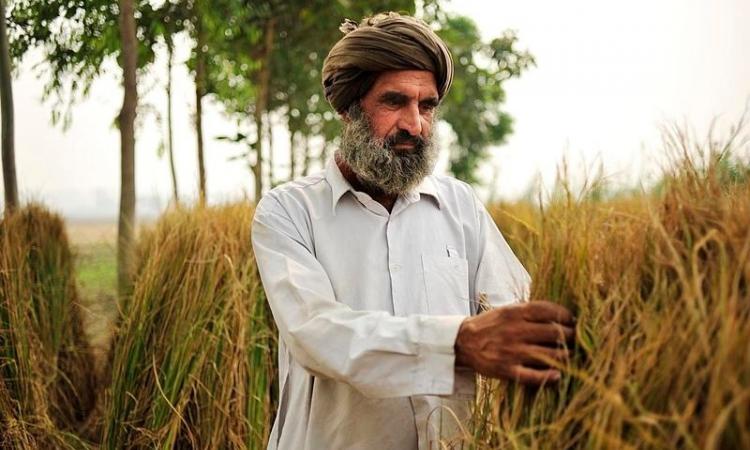
Punjab has made great progress in grain production following the technological revolution in agriculture in the 1960s. The state achieved this through subsidised use of high yielding variety seeds, fertilisers and irrigation.
The paper titled 'Groundwater Irrigation-Electricity-Crop diversification nexus in Punjab - Trends, turning points, and policy initiatives' published in the Economic and Political Weekly, informs that this, however, led to the increased emphasis on irrigation to increase yield.
There was a gradual shift from canal to tubewell irrigation as the latter was considered more flexible and reliable. With the focus shifting from surface to groundwater use, farmers moved from their traditional wheat-maize crop pattern to water intensive wheat-rice cropping pattern.
The agricultural crisis in Punjab
The paper argues that the current agricultural crisis in Punjab is due to this shift in irrigation, the increased dependence on groundwater, and water-intensive crops like wheat and rice. Food procurement and electricity policies have made it convenient for farmers to improve production, but at the same time, have also made agriculture economically and ecologically unsustainable.
Realising this impending crisis, suggestions have been offered by the Johl Committee on the need to move away from the wheat-rice cropping pattern to the traditional wheat-maize. Although the government has contemplated the replacement of rice with maize in the kharif (monsoon) season to reduce groundwater depletion, the rice dominated cropping pattern remains.
The paper dwells on the feasibility of this recommendation in the context of irrigation development, shifts in cropping patterns and electricity consumption in Punjab along with the changing agricultural and electricity policies.
Reasons behind the water crisis
In the last 20 years, Punjab has been experiencing alarming signs of groundwater over-exploitation. Electrification of pump sets and free electricity for agriculture are the main culprits for this unprecedented electricity consumption and overpumping.
The paper argues that the present situation came into being mainly due to lenient policies on paying for electricity for agricultural purposes. This has since turned into a regime of free electricity from a flat price one. Since May 2013, the Punjab government has approved a new agriculture power tube well policy under which it has granted 25,000 tube well connections to farmers during 2013-14.
Increase in irrigated area and free electricity were efforts made by the government to increase agricultural growth and rural income. Along with it came the shift to paddy cultivation. This has not only led to assured incomes, but also to groundwater depletion, income inequality, and unsustainable agriculture.
Since no volumetric pricing of water exists, farmers do not choose crops on the basis of water requirements; rather their choice is based on water availability and estimated net returns. Even with free electricity, farmers who are unable to run their pumps to full capacity use diesel pumps in times of acute shortage, leading to an increase in the cost of cultivation, thereby decreasing the profitability of the rice grown.
However, this does not matter in the context of the minimum support price (MSP) given to farmers. Over 80% of the rice produced in Punjab is procured by the government for the public distribution system (PDS), which has shown a steep hike since mid-2005.
The cropping decisions of a majority of farmers in Punjab are based on the declared MSP. So, taking into consideration the rise in the assured market price, even with low-quality electricity supply, farmers invest in diesel to grow rice as its selling price does not
give them any market signal of the depleted resource.
The paper ends by arguing that under the prevailing conditions of electricity pricing and MSP, rice will remain the most remunerative crop and farmers will not take up maize cultivation. In the absence of a linkage between the procurement policy and the energy policy which will incentivise farmers to use groundwater efficiently, none of the measures to achieve crop diversification will be successful.
Please download the paper below.
/articles/punjabs-groundwater-crisis-bye-product-govts-short-sighted-policies